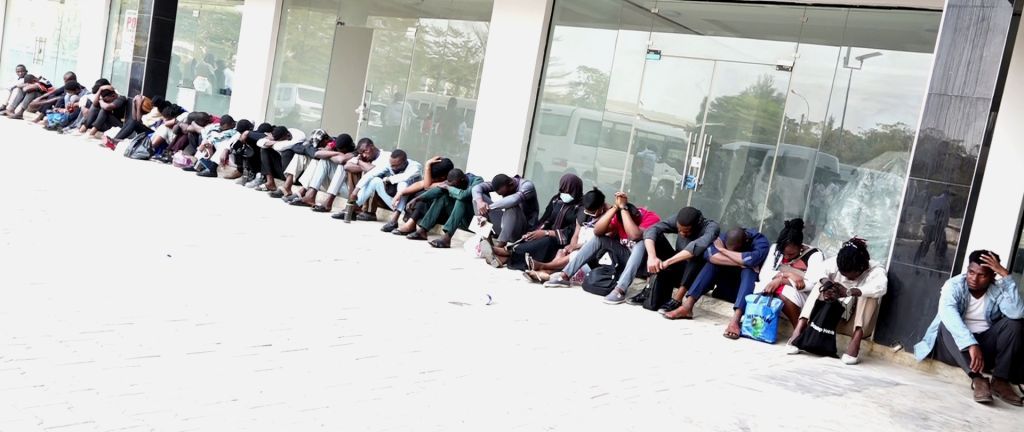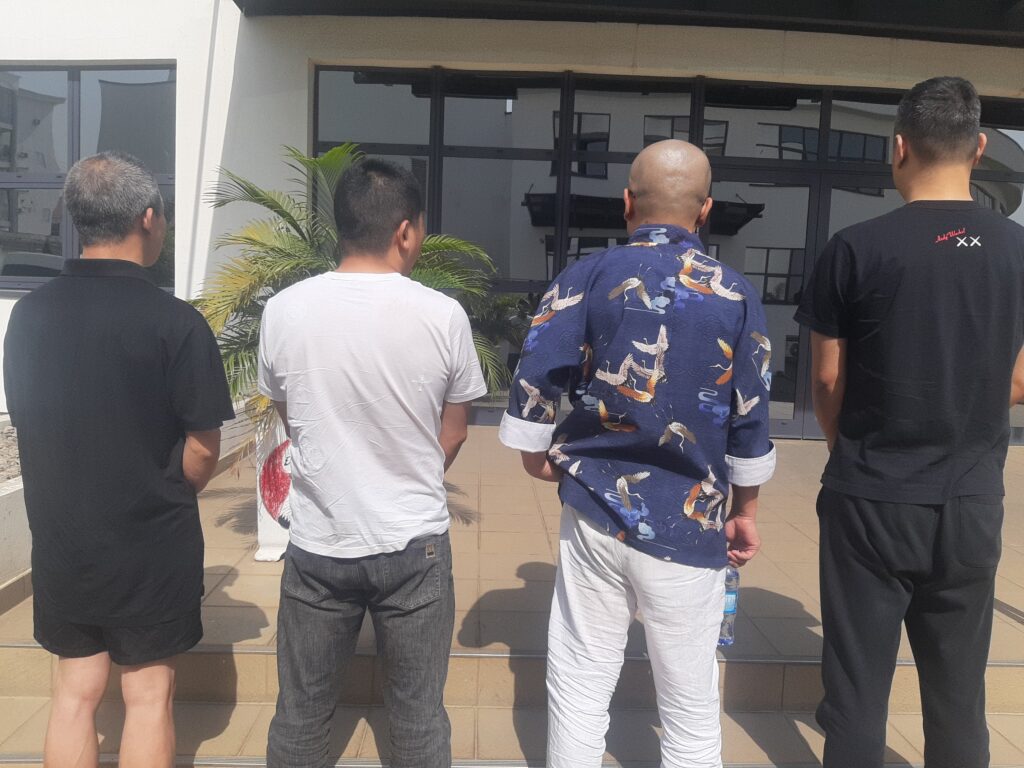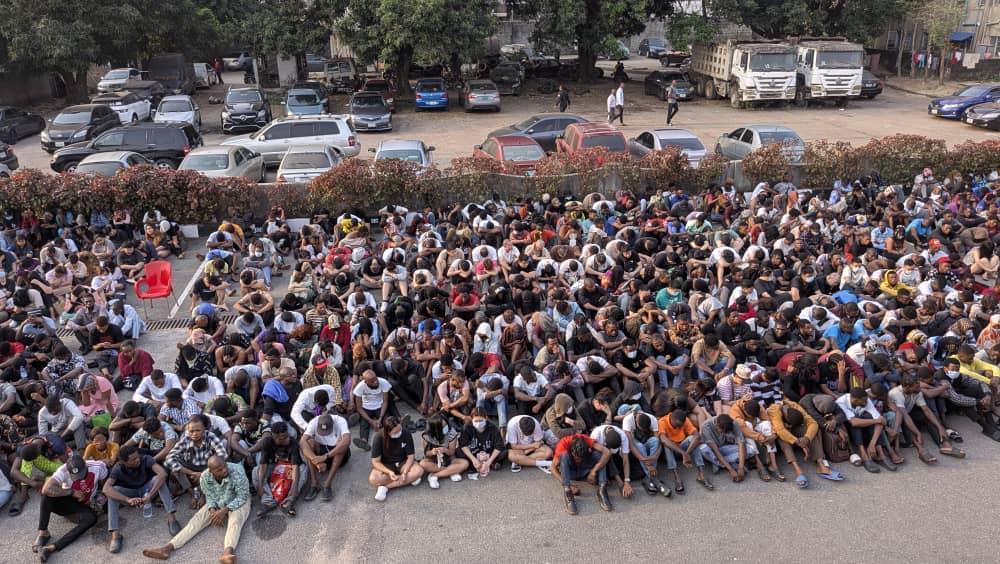The Economic and Financial Crimes Commission (EFCC) says it has arrested four Chinese nationals and 101 Nigerians in Abuja over alleged involvement in internet fraud.
The arrests took place on Thursday when a business apartment located in the Gudu area of Abuja was raided by EFCC as part of its ongoing efforts to combat corruption and fraudulent activities in the country, the law enforcement agency says.

EFFC: We are ramping up operations against internet fraud
The suspects, comprising 67 men, including the four Chinese, and 38 women, are alleged to have participated in a sophisticated hotel review job scam that targeted victims and hotels primarily in Europe and other regions. “The suspects,” EFCC states, “will be charged to court upon the conclusion of the investigations.”

EFCC says the recent arrests in Abuja were executed following intelligence reports that indicated suspicious activities at the Gudu business apartment. The EFCC’s investigation revealed that the suspects were involved in a scam that exploited hotel review services, deceiving both individuals and establishments by presenting false reviews to manipulate perceptions, and attract victims.
The EFCC says it has ramped up its operations against internet fraud in recent months, reflecting a broader commitment to tackling corruption within Nigeria.
The latest operation follows a high-profile raid in December 2024, where the EFCC apprehended 792 suspects linked to cryptocurrency and romance scams in Lagos. That operation saw the arrest of 148 foreign nationals, including a significant number of Chinese and Filipinos, highlighting the international dimension of internet fraud affecting Nigeria.

In October 2024, 10 individuals were convicted for their involvement in various internet-related offences, receiving sentences that included jail time and hefty fines. These actions underscore the EFCC’s determination to hold perpetrators accountable and restore public trust in financial institutions, according to the law enforcement agency.
EFCC says the recent arrests in Abuja were executed following intelligence reports that indicated suspicious activities at the Gudu business apartment. The EFCC’s investigation revealed that the suspects were involved in a scam that exploited hotel review services, deceiving both individuals and establishments by presenting false reviews to manipulate perceptions, and attract victims.
“The scale of this operation illustrates the extent to which fraudsters are willing to go to exploit unsuspecting individuals,” Dele Oyewale, EFCC’s Head of Media and Publicity says. “We are committed to dismantling these networks and ensuring that those responsible face justice.”
The EFCC says it has recognised that addressing internet fraud requires collaboration beyond national borders. The commission says it is actively engaging with international law enforcement agencies to tackle these crimes effectively. “We are working with our global partners to investigate these syndicates comprehensively,” Ola Olukoyede, EFCC Chairman states during a recent briefing.
While many associate cybercrime with Nigerian perpetrators, there is a significant presence of foreign nationals involved in these schemes according to Olukoyede who notes that “this operation demonstrates that criminals from various countries exploit our nation’s unfortunate reputation as a haven for fraud.”
Source of Article
